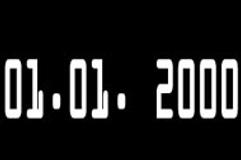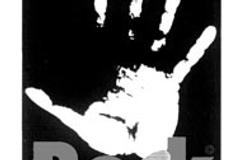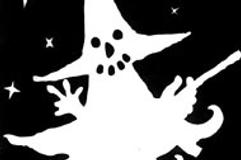Archive of articles - April 1998
If you desire to read an old article, use the search bar or select the publication date.
Three Hungarian parties merge into one
Threatened with extinction by the ruling coalition's election law amendment, three ethnic Hungarian parties obeyed Darwin's 'survival of the fittest' law and on April 18 exchanged marital vows after almost eight years of living together out of wedlock.However much the transformation from the current loose Hungarian Coalition (MK) into a tighter federative Party of the Hungarian Coalition (SMK) may have seemed simple to the respective party leaders, some tensions remain which indicate that the unity may prove very fragile.
Clear relations key to Tatra Banka's clean portfolio
There can be few Slovak bank chairmen with as much cause for confidence as Tatra Banka's Milan Vrškový. In a banking sector where classified loans represent 23 percent of overall credits, only 1.4 percent of Tatra Banka's portfolio is made up of classified loans. In 1997 its net profits rose 90 percent to 900 million crowns ($26 million).Tatra Banka's main focus is corporate banking but it is looking to extend its reach to individual customers as well, said Vrškový, who attributes his bank's success to the relationship between ownership and management, an issue he considers crucial in transition economies. "I would say the reason why our bank is doing well is because behind us the owners are squeezing," he said. "This is very important. These domestic banks, do you think they feel the ownership?"
SAX struggles in aftermath of disappoining 1997 results
Market developmentsThin trading activity on the Bratislava Stock Exchange floor contibuted to the continued bearish mood of the Slovak equity market over the past two weeks. During the two week period, the SAX index again tested its historical lows, falling to 132.47 on April 2 and stabilizing at 134.16 on April 16. The market did not observe any dramatic price changes of the main traded companies and only 7.3 percent decline in Nafta share price and 18.5 percent increase in ZSNP share price are worth mentioning. The market seems to be well priced at the moment and we believe that any turnaround in the market sentiment is unlikely unless blue-chip companies report extremely strong interim results.
Slovakia's rating cut hurts the innocent while the guilty go free
Moody's, the world's most prominent rating agency, downgraded Slovakia's rating from the lowest possible investment rating, Baa3, to Ba1 at the end of March, relegating Slovakia to the club of non-investment rated countries.Two weeks later, the second most prominent world rating agency, Standard and Poor's, changed their long term rating view for the Slovak Republic. Although this latter measure did not mean a direct downgrade of Slovakia's rating, it was a sign that they are cautiously watching Slovakia's moves in the near future, and that they share Moody's pessimism regarding the development of the Slovak economy.
Heading toward the software confusion millenium
At the stroke of midnight on December 31, 1999, millions of people will raise their champagne glasses to toast a new millenium. But while the bubbly flows, a real drama will unfold in darkened offices and factories around the world, as millions of computers and other electronic devices simply shut down in confusion.This is the scenario the world faces if nothing is done in the next 617 days to remedy the year 2000 problem, or the "Y2K Problem", as it has been nicknamed by software experts, many of whom are already beginning to realize that the solution will neither be as simple nor as inexpensive as they originally thought.
Construction Ministry figures inflated to secure funding
The Ministry of Construction and Public Works (MVVP) has been accused by the Slovak Democratic Coalition (SDK) of misleading the public in order to procure more money from the state budget.The Slovak Statistical Office, in cooperation with the MVVP, published information that 7,172 flats were completed in 1997. However, Ľubomír Ficker, the SDK advisor for housing, alleged that hundreds of unfinished flats had been included in the statistics.Since 1994, when it was created to meet the Association of Slovak Workers' precondition for joining the coalition government, the MVVP has financially supported projects for the construction of new flats all around the country.
The Spotlight
THE RAINMAKERTHE GAMEPALMETTOIN & OUTAS GOOD AS IT GETSBRIDGE OVER THE RIVER KWAI
Rock the vote campaign shoots to end young voters' apathy
The lack of political activity among many young voters between 18 and 25 and their low turnout in the 1994 national elections led Nadácia pre občiansku spoločnosť (NOS), a Slovak non-government organization (NGO) affiliated with The Foundation For a Civil Society, to implement a Voter Motivation and Awareness Campaign. Known as Rock Volieb, or Rock the Vote, the movement is aimed especially at newly eligible voters.Marek Kapusta, Rock Volieb's program officer, is convinced that young people's apathy toward politics is a problem common to all democracies. "Basically, it's very similar to the rest of the world," he said. "Young people show low interest in public issues like elections."
Appeal to the Government of the Slovak Republic
The Štúrovo Town Council has prepared a referendum for April 19, 1998. The citizens of the town will have to answer the famous four questions from the invalidated national referendum which took place in May last year. Because the date set for this provocative action is approaching inexorably, it is imperative - as Slovak folkwisdom puts it - to pour clear wine [ie. to clarify the situation].The time for idle discussion and legal wrangling is over! The truth is different! [The referendum] absolutely is not a question of a moral quest or a test of democracy in the Slovak Republic. It is a deliberate and long-planned move by irredentist magyars [Hungarians who call for a revival of Greater Hungary] aimed against the territorial integrity of the Slovak Republic.
Ghost festival reincarnates medieval past
The most famous castle in Slovakia will be overrun for 10 days starting April 30 by ghosts, witches, knights in shining armour, fair maidens, falconers, and thousands of spectators who wish to experience Slovakia's medieval past. The picturesque Bojnice castle, modelled on the chateaux of the French Loire valley, is the perfect backdrop for this 5th annual international ghost festival.Whether one approaches by car or bus, the castle can be glimpsed from afar, perched above a clustered village of red roofs pushed into the side of densely forested hills. The peace and quiet of the scene evaporates as you get closer. During festival days, and especially on weekends, the mass of little kiosks, which sell everything from baskets and ceramics to kitchen ware and socks, spills out from under the castle into the village.
Markets beat rating agencies on downgrade
The downgrade of Slovakia's rating by Moody's Investors Service was only a reflection of the current opinion of Slovakia on world markets, according to economic analysts.On those markets, Slovak bond yields had risen to a speculative level long before the Moody's downgrade on March 30. Therefore, even the possible downgrade indicated by another renowned rating agency, Standard & Poor's, should not substantially affect the interest rate that the Slovak government and corporations must pay when borrowing abroad.
A democratic spring in Štúrovo
The April 19th referendum held in the southern Slovak city of Štúrovo offered convincing proof that the seed of democracy has begun to take root among Slovak citizens. Thousands of city residents turned out to exercise their constitutional right to participate in public affairs despite ominous warnings from the Prime Minister Vladimír Mečiar, despite an incendiary media campaign waged by a government newspaper, despite a district court ruling that the referendum was illegal, and despite the fact that the results of the plebiscite will not bind the government to act on them (see related story, page 1).On the surface, there was little to distinguish the Sunday vote in Štúrovo from similar democratic events in western countries. But the referendum's true flavor was hidden in the details of the day.
Travel CD ROMs have yet to find a home in market
Even though information presented through multi-media technology - Internet, CD ROMs, virtual reality - is all the rage in an information-crazed world, Slovakia has yet to capture that spirit. Recently, however, manufacturers have tried to wed theory to practice by promoting one of Slovakia's greatest assets and future prospects, tourism, through CD ROM technology.Thanks to Slovakia's extensive mountains, quiet village life and numerous castles, promoting tourism seemed like a natural business venture. However, a combination of slow growth in the tourist industry and a lack of hardware to support CD ROMs has meant that travel books with a similar content sell much better than CD ROMs. CD ROM makers, however, have not lost hope that the market will grow.
SACR Contracts Foreign Partners
The Banská Bystrica based Slovak Travel and Tourism Agency (SACR), a state institution run by the Tourism Section of the Slovak Economy Ministry to support Slovak tourism, made several important contracts with Western and Central European partners, links that could help reverse the decline in Slovakia's tourist industry.One of the key contracts, according to Ján Bočkay, SACR Director, is a partnership in Die Donau, an association of tourist agencies from the countries of the Danube Region (nations through which the Danube flows). Slovakia will host the association's annual exchange in 2000.
Around Slovakia
Grenade explosion retaliation for police searchHousing estate hit by earthquakeWheelchairs donated
Agrarians plan to plough their way into Parliament
The New Agrarian Party (NAS) was established last November as a merger between the center-right Slovak Peasant Party (RSS) and the leftist Farmers' Movement (HP), both founded in 1990. The new party hopes that the merger will enhance its organizational structures and widen its electorate, while the new name indicates their intention to address and represent rural Slovakia. Spectator correspondent Fridrich Hláva interviewed Pavel Delinga, Chairman of the NAS and Chair of the Parliamentary Committee on Agriculture.
- Pastoral letter divides Slovaks
- News digest: Slovakia is being hurt by its failure to integrate foreign workers, says auditor
- Hollywood turns Slovak highlands into high-speed playground Video
- News digest: ‘Charlatans and quacks’: Pandemic investigator accuses scientists, pushes for jab ban Video
- Authoritarian echoes from Delhi to Bratislava
- Top 10 events in Bratislava for foreigners
- A café in an ice cellar, sand dunes and a flower shop at the border
- Forget the spa – Bojnice’s trails are the real therapy Photo
- A café in an ice cellar, sand dunes and a flower shop at the border
- Top 10 events in Bratislava for foreigners
- Bratislava opens new support centre for foreigners
- News digest: ‘Charlatans and quacks’: Pandemic investigator accuses scientists, pushes for jab ban Video
- You say nazdar, I say dovi
- Pastoral letter divides Slovaks
- Neuroimmunologist Norbert Žilka: Slovakia in Alzheimer's research premier league
- Hollywood turns Slovak highlands into high-speed playground Video
- Bratislava opens new support centre for foreigners
- Hollywood turns Slovak highlands into high-speed playground Video
- You say nazdar, I say dovi
- A café in an ice cellar, sand dunes and a flower shop at the border
- Top 10 events in Bratislava for foreigners
- Independent cultural space on Bratislava embankment to end soon
- Záhorie uncovered: Slovakia’s quiet corner full of surprises Photo
- Chicken Jockey! Chicken Jockey! Chicken Jockey! Video
- Last Week: And then they came for the NGOs
- What abides: Giving a shit
- Slovakia brings back border checks with Hungary and Austria starting April 8
- Bratislava opens new support centre for foreigners
- Hollywood turns Slovak highlands into high-speed playground Video
- Štítnik resumes hand-crafting Christmas ornaments after 25 years
- You say nazdar, I say dovi
- A café in an ice cellar, sand dunes and a flower shop at the border
- News digest: Slovakia is being hurt by its failure to integrate foreign workers, says auditor
- Forget the spa – Bojnice’s trails are the real therapy Photo
- Košice steelworks sinks deeper into the red
- A 'pink moon' will grace Slovak skies this Sunday
- Authoritarian echoes from Delhi to Bratislava
- Weekend: A sports event to get your running fix Photo
- Record-breaking Bratislava Marathon supports visually impaired athletes
- News digest: ‘Charlatans and quacks’: Pandemic investigator accuses scientists, pushes for jab ban Video More articles ›






